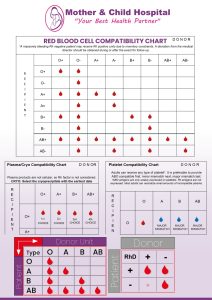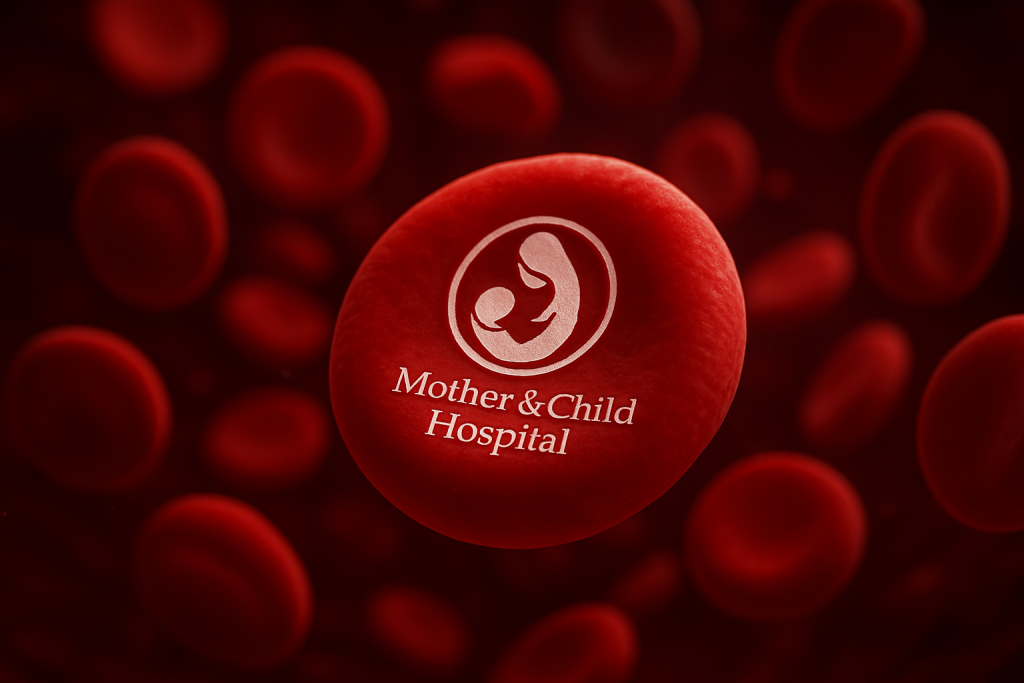Blood & Baby Series Week 1: Rhesus (Rh) Factor in Pregnancy Explained
This is the first part of our 4-week “Blood & Baby” series. Over the coming weeks, we will walk with you through important topics every new mother should know about blood and babies. We will cover:
- Week 1: Rhesus (Rh) Factor in pregnancy
- Week 2: Blood groups and cross-matching
- Week 3: Blood donation and transfusions for newborns
- Week 4: Inherited conditions like sickle cell disease
Let’s begin with Rhesus factor, one of the most important blood topics for expectant mothers.
What is the Rhesus (Rh) Factor?
- Blood has groups (A, B, AB, O) and a protein called the Rhesus factor.
- If you have this protein on your red blood cells, you are Rh-positive.
- If you do not have it, you are Rh-negative.
Both are completely normal. But during pregnancy, your Rh factor may affect your baby’s health.

Why Does Rh Factor Matter in Pregnancy?
- If a mother is Rh-positive, there is no concern, whether the baby is Rh-positive or negative.
- If a mother is Rh-negative and the father is Rh-positive, the baby may inherit Rh-positive blood. This creates a difference between mother and baby’s blood.
Normally, mother’s blood and baby’s blood do not mix. But small amounts can cross during pregnancy, delivery, miscarriage, abortion, or certain medical procedures. If this happens, the mother’s immune system may see the baby’s blood cells as “foreign” and produce antibodies against them.
Risks of Rh Incompatibility: Hemolytic Disease of the Newborn (HDN)
If antibodies form, they can cross the placenta in future pregnancies and attack the red blood cells of another Rh-positive baby. This condition is called hemolytic disease of the newborn (HDN).
Complications of HDN include:
- Severe anemia in the baby
- Jaundice (yellowing of the skin and eyes)
- Enlargement of the liver and spleen
- Brain damage in severe cases
- Stillbirth in very serious situations
The good news: HDN is preventable.
How Are Mothers Tested for Rh Factor?
- All pregnant women are tested during their first antenatal visit for blood group and Rh factor.
- If you are Rh-negative, your doctor will closely monitor your pregnancy.
- Additional blood tests check if your body has already developed Rh antibodies.
The Role of Anti-D Injection
- To prevent antibodies from forming, Rh-negative mothers receive an Anti-D injection (also called Rh immunoglobulin).
- It is usually given:
- At around 28 weeks of pregnancy
- Within 72 hours after delivery if the baby is Rh-positive
- After miscarriage, abortion, or any procedure where blood mixing is possible
The Anti-D injection works like a shield. It clears any Rh-positive cells from the baby that may have entered the mother’s blood before her immune system reacts. This keeps future pregnancies safe.
Key Takeaways for Mothers
- Ask about your blood group and Rh factor early in pregnancy.
- If you are Rh-negative, follow your doctor’s schedule for testing and Anti-D injections.
- With proper care, Rh incompatibility is not a danger for you or your baby
Coming Up Next
In Week 2 of Blood & Baby, we will explain blood groups and cross-matching,how doctors make sure your baby receives safe blood during emergencies.
Stay tuned, and share this with a new mother who needs to know.


